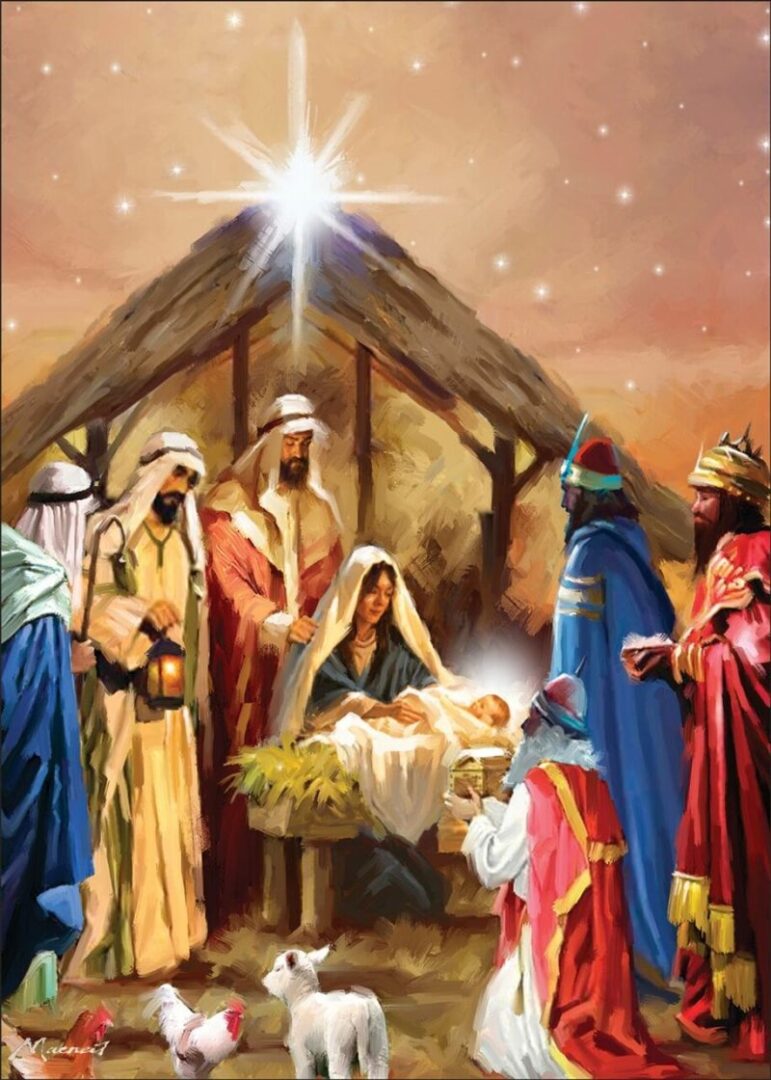My dad taught American history for a living, and so I have been immersed in it from childhood. Like many boys my age, I played cowboys and Indians growing up and imagined what it would be like for the pioneers expanding westward into the great wilderness beyond the Alleghenies in the days of the Wild West. So I was intrigued by the Magnificat devotional magazine’s Advent publication recounting a special Christmas in the gold rush era of the 19th century. The story transpired not in California but in Montana in a little town called Virginia City. Never heard of it? That’s because it was in the middle of the wilderness, a town that sprang up almost overnight when two men hiding from hostile Indian warriors stumbled upon an unbelievably rich vein of gold.
Within one year of discovery, over $10 million dollars had been mined as adventure-seekers looking to strike it rich quick descended in droves upon the gulch where these fortunate men had unearthed their treasure. Needless to say, not all of the folks who piled into the settlement were honorable men. The gold rush towns had the reputation of being hard-living, hard-drinking places, often full of men who would do almost anything to amass easy wealth.
As so often in the history of the Americas, it was missionary priests who made a tremendous difference in advancing the Kingdom of Christ. Into this spiritually hostile climate of the Wild West stepped an Italian missionary, a Jesuit priest by the name of Giorda. Although a brilliant scholar, Fr. Giorda didn’t want to spend his life in a library. He wanted to be on the front lines and so volunteered to work with the Native Americans of the Rocky Mountain West. Like many of his fellow missionaries, he was in frequent danger. He once became a living example of the parable of the Good Samaritan: like the victim in the story, he was robbed, stripped, beaten, and left for dead. Another time he slipped into the frozen Missouri River and might have died of hypothermia had not a friendly Indian rescued and hauled him out with his lariat.
So in this climate Fr. Giorda found himself just before Christmas trying to find a place to celebrate Christmas Midnight Mass. He was not looking for anything fancy – just a room where he could construct an altar and cobble together a small congregation to bring the Holy Sacrifice to his mission field. Although he was able to find one devout prospector to help him knock on doors in his quest, he had no luck at all in acquiring any space. Because of the mad rush of gold-diggers, there was no nook or cranny anyone was willing to give up for what seemed such a useless (and unprofitable) purpose – because, to the way of thinking of the townspeople, it could not make anyone rich.
So just hours before Christmas, exhausted and demoralized, Fr. Giorda began to give up and seek some rest. The story has a happy ending: When he was canvassing the area making his plea, word began to get out amid the countless saloons in town. One of them housed the champion boxer of the region, who had Catholic roots. He took pity on the missioner and immediately contacted the governor, a native Irishman and a personal friend. Together these two twisted the arm of the local theater owner to help the hapless mission priest out. After they bribed that owner with enough gold to offset his financial losses, he reluctantly allowed his venue to be used for a makeshift chapel for the full twelve days between Christmas and Epiphany. The Governor assembled an army of workmen to transform that entertainment venue into a beautiful church. Word got out far and wide that Mass would be celebrated, so people flocked from miles around to Virginia City to honor the birth of their Savior in the midst of the gold rush. (For the full version of the story, see James Monti, Magnificat Advent Companion 2021).
This story from our pioneer past provides a lot to reflect on throughout this Christmas season. Ironically, the prospectors and townspeople were so wrapped up in amassing gold for themselves that they had no interest in the true treasure that Fr. Giorda sacrificed so much to bring them: the very Body and Blood of Our Savior, Jesus Christ, the Son of God and the Word made Flesh. The same body and blood that was born of the womb of the Virgin Mary and laid in the cradle at Bethlehem comes to us under the sacramental veil of bread and wine not just on Christmas but every day. Our low Mass attendance in most parishes reminds us that not many are willing to give up their earthly “gold-seeking” to come face to face with the greatest treasure we could possibly find in our earthly life: Jesus, the newborn King.
As Christians blessed with the gift of faith, it is up to us to become like that prizefighter and that Montana governor: bringing people who seek their treasure in gold to set their sights on higher things, and above all the Newborn King who descended from Heaven to sacrifice His life for us on the Cross and bring us into the Father’s Heavenly Kingdom. Like the magi from the East, we should seek not so much to find gold, but to give “gold” (our greatest treasures) to glorify the Savior. Unlike the many townspeople of Virginia City, who at least at first found “no room at the inn” for the presence of Christ, may we always welcome into our homes and hearts the treasure of the Lord’s Divine Presence.
Merry Christmas!
